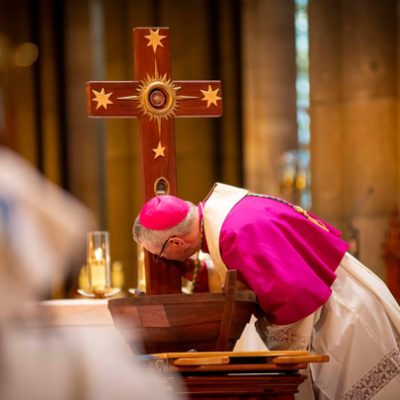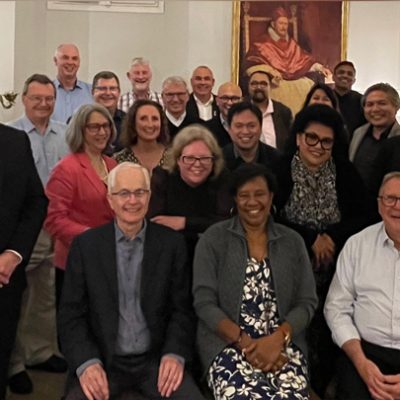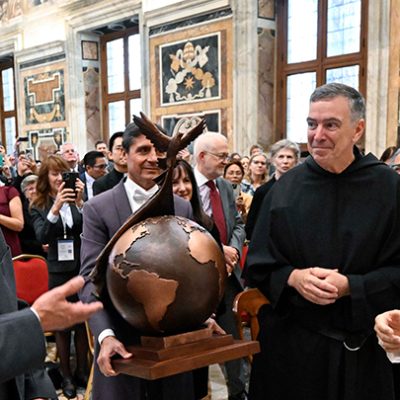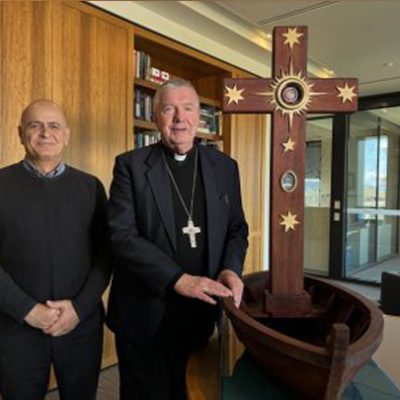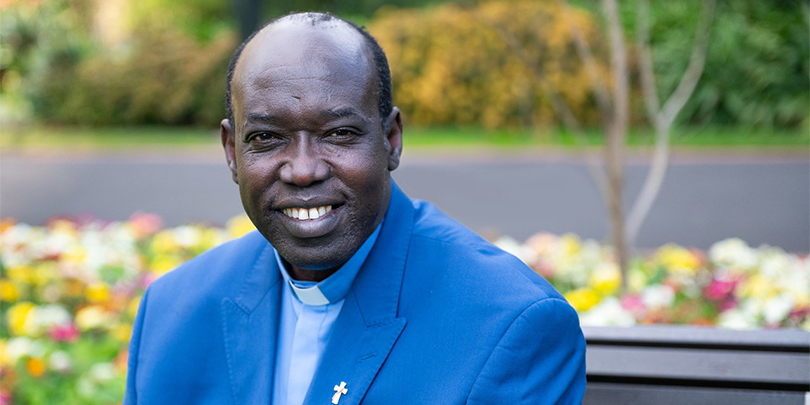
When Deacon George Piech Meat arrived in Australia in 2004 after years as a refugee, his first port of call was a Catholic church. Source: ABC News.
He had fled South Sudan with his wife and three children, as a decades-long civil war ravaged the country. They spent two years waiting for a visa in Egypt before settling in Melbourne, where the couple had another three children.
“It was a very, very tough journey, a journey of struggle and a journey of sacrifices,” he told ABC RN’s Religion and Ethics Report.
In Melbourne, Deacon George and his family joined a local parish, where they found a community of others who had escaped violence and persecution in places like Ethiopia, Kenya, Uganda and the Middle East.
“We thank God [for] those who made it here,” he says.
“Jesus said, ‘I was a stranger, and you welcomed me’, and this is exactly what all these churches did to African communities.”
With the Church’s support, he learned English and continued the religious education he had begun in South Sudan.
In 2012, he was ordained as a permanent deacon and began working with migrant communities across several parishes.
He now works with new migrants helping them through the challenges of resettlement and making them feel welcome in their new home.
Deacon George’s experience aligns with a recent study from Western Sydney University, which found that Black Africans in Australia see religion as “central to most aspects of their lives”.
Kathleen Openshaw, who co-authored the study, says for many African migrants, seeking a religious community in Australia is a natural extension of their cultural identity.
In many African nations, churches “provide key spiritual, social and material hubs” around which “the community is centred”, Dr Openshaw says.
FULL STORY
These African communities in Melbourne are finding belonging and support in the embrace of the Church (By Anna Levy, ABC News)



